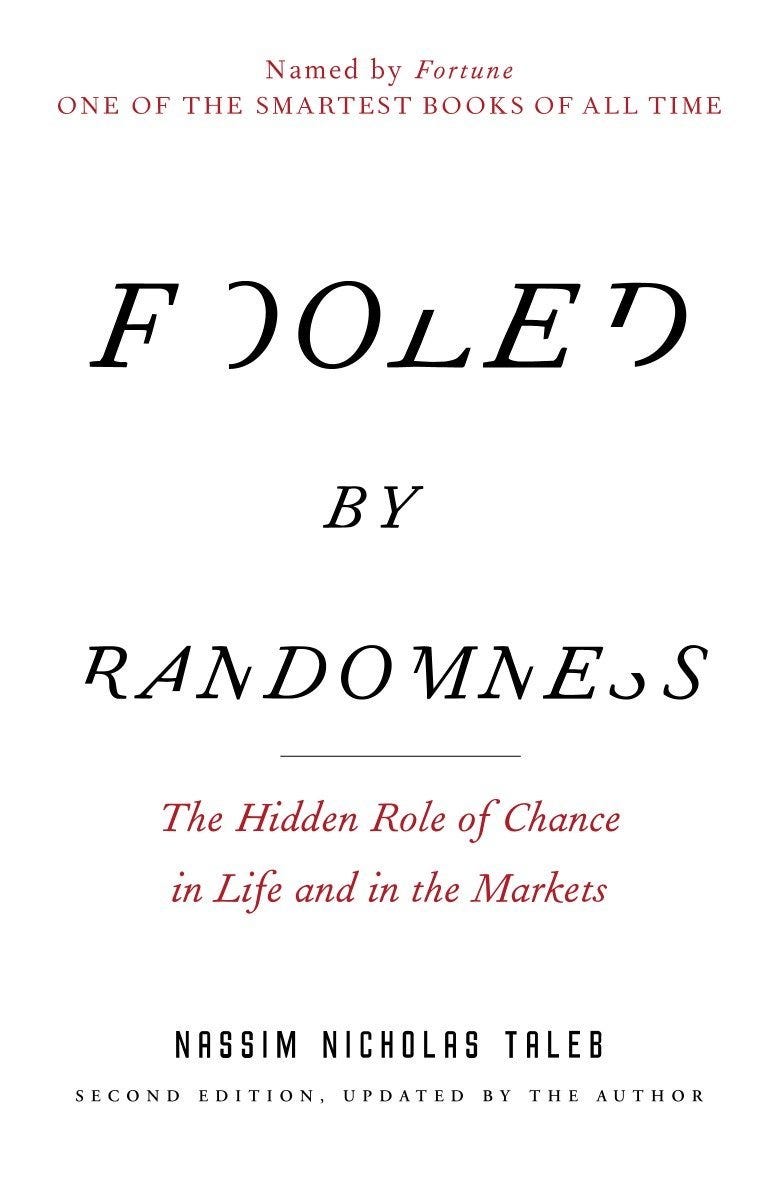Is Nassim Popperian?
He affirms so, so he might be. There is no accreditation needed to claim that, nor is it important. He can quote some of Popper's discoveries: first, fallibilism, which states that the final truth cannot be reached and that the growth of knowledge is a process of error correction. Second, the criteria of demarcation of science: testability. However, among the set of discoveries Popper made, perhaps the most significant for Nassim's work is the idea that the method of induction is erroneous.
After reading his book, it seems evident that he misses a relevant idea from Popper: the crucial role of explanations. Science and other areas of human knowledge are about understanding the world, not mere tools to predict events.
At the beginning, the author states that he wrote informally and far from academia, using quotes from memory and "avoiding anything that might be seen as work." Fair enough, that might be my motivation as well, to write for fun.
He also describes Popper's refutation of induction with a well known story: "Every swan is white and the more of them I see, the more confidence I have. I have seen millions in many continent, my confidence in the truth that all this type of bird are white skyrocket and it is justified by my observations!, till I went to Australia and saw only one black swan."
Central to what seems to me like a blatant contradiction, he correctly states that probabilities are subjective statements. Yet, at the same time, he bases his investing strategy ("low probability, high rewarding") on this subjective type of analysis.
I dare to say that a Popperian investor would try to eliminate all the subjective elements and strive to find a good explanation for why a given economic activity may rise in the future.
The problem for the investor is this: what part of the economic activity will increase its value and what part will decrease its value? To answer that, conjectures need to be created and improved through criticism. Criticism may come, for example, from studying the needs of society, relevant laws, commodity stocks, the internal rules of companies or sovereign states, and the degree of implementation of those rules. Once the decision to invest is made, the market (reality) will provide either a refutation or a provisional corroboration. The Popperian investor will understand that this corroboration is never definitive or final.
He understands the financial markets (his area of expertise and success) as a sort of casino, and he studies his prediction models and hypotheses with a "Monte Carlo generator" - a generator of random numbers. In his mind, investing is like betting, and there is no need to look for explanations about why prices go up or down. However, randomness does not exist in physical reality, neither in roulette nor in the markets. It is simply a way to express our uncertainty about the future.
Einstein said, "God does not play with dice," a metaphor equivalent to saying that randomness is not fundamental. Randomness implies that events are not governed by the laws of physics but by some unexplained principle.
In some passages, the author seems to take a defensive position against critics, stating that he has been accused of arrogance. He pushes back by accusing them of not recognizing the difference between "arrogance and irreverence." I couldn't find any significant difference between those terms, nor did I search very hard. Undoubtedly, the book is written in a nice, arrogant style. This is another contradiction with the author's subscription to the Popperian crowd, which is characterised by intellectual modesty and tolerance since this philosophy rejects the possibility of knowing the final truth and considers words as a fallible reflection of concepts.
If I were trying to imitate his style, I would say that in some of the Everettian (Taleb brings up the word Everett in the book) many worlds, he still sounds smart but remains poor and unnoticed. But we will remain both in this one where we seem to share the fun for writing.
Referencies
Nassim Nicholas Taleb. Fooled by Randomness.
Karl Popper. Conjectures and Refutations.
David Deutsch. The Beginning of Infinity.

